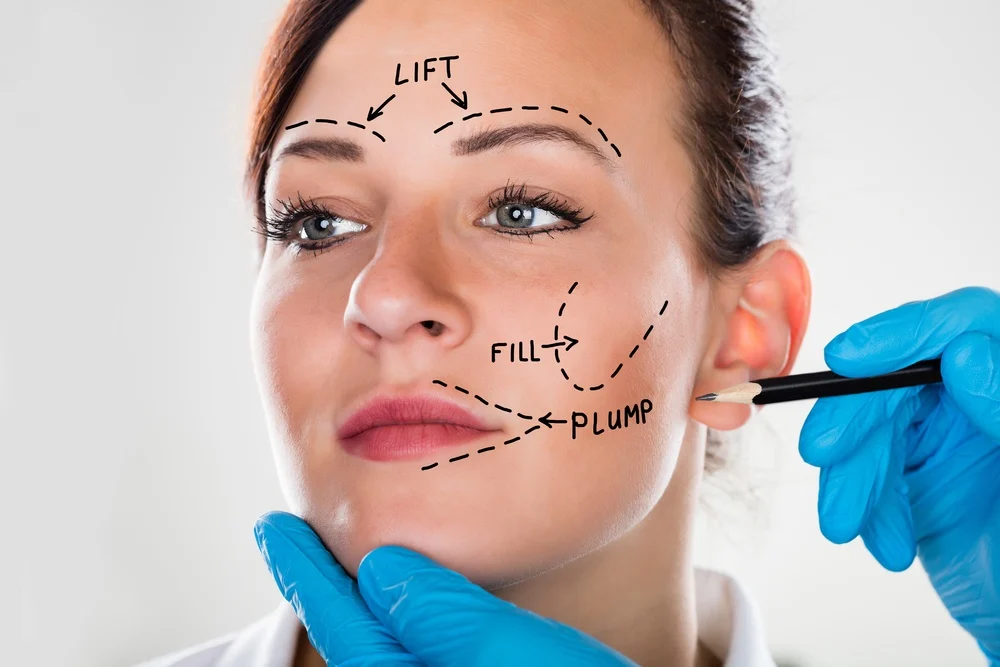Ever thought of having a facelift? This is one of the most sensitive surgical procedures that can make or cause more problems on your face, although the decision is personal.
In third-world countries, facelift surgery is considered a luxury service for the rich. It is correlated with cosmetic surgery; hence no much attention to establishing a plastic surgery department in government hospitals.
However, advanced technology has contributed significantly to the broadening scope of facelift surgery and the government today provides for reconstructive and aesthetic procedures.
Dangers of Facelift Surgeries in Third World Countries

When undertaking a facelift surgery, you’ll be required to fill a consent form allowing a qualified facelift surgeon to undertake the procedure for your preferred purpose regardless of the results.
Facelift surgery is a risky affair, but it worsens in third-world countries where facelifts are considered nonessential.
Many dangers are associated with facelift surgeries, including bleeding, facial nerve injury, infection, change in skin sensation, persistent pain, etc. However, in developing countries, there are additional risks, as we shall discuss below.
1. Unexpected Beauty Botch Surgery
When deciding on facelift surgery, you are taken through possible outcomes to be aware of before deciding. You then fill a consent form to show that you understood the possible outcome and are ready to proceed. Beauty botch is one of those outcomes.
2. Blood Loss
Facelift surgery is like any other surgery, and sometimes you can bleed excessively. This is why most people from third-world countries can’t undergo this procedure due to low blood levels.
Excessive blood loss can lead to other unforeseen complications like blood pressure drop which is fatal. And while a patient might lose blood when on the surgery table, it’s also possible for internal bleeding after the surgery.

3. Infection
In third-world countries, sanitation is poor due to a lack of information and water shortages. People who undergo the necessary surgeries are allowed to overstay in the hospital to help manage the wound.
Skin infections called cellulitis may occur immediately after surgery, besides other internal infections that need antibiotics to clear away. When discharged to go home, chances of contracting infection are high due to the living conditions.
4. Nerve Damage
Any surgical procedure can affect your nerves. The common signs of damaged nerves are tingling and numbness. Although the damage is temporary, some patients fail to recover, and it becomes a permanent condition.
5. Appearance Dissatisfaction
When undertaking facelift surgery, the highest percentage of patients are interested in changing their appearance thus deemed as cosmetic surgery. When the results after the procedure are not as perceived, it becomes a problem dealing with appearance issues.
People in third-world countries lack information on other benefits of this procedure, thus concentrating on the negative side, which is rare.
Factors that Influence Facelift Surgeries Dangers in Third World Countries

1. Limited Medical Resources
Few medical resources can cater to simple procedures like caesarian sections or reconstructing a burn victim in developing countries. This makes it even harder for the government to think of a facelift surgery department deemed a luxury.
The available medical training and resources are utilized by general doctors who attend to the less complicated cases. At the same time, the surgeon is scheduled to do other minor and necessary surgeries when the required equipment is available.
This prompts facelift surgeries to be carried out in private hospitals as the government cannot afford to equate a whole department to take care of such patients.
2. Presence of Advanced Diseases
Advanced diseases like rare skin conditions are a great hindrance to facelifts surgeries in developing countries. Once a patient contracts these diseases and fails to get the required medical attention, it becomes hard to carry out reconstructive surgery on their skin.
While a government hospital is equipped with all specialists, most personnel are general practitioners who do not know about treating these advanced diseases.
Besides the skin diseases, patients suffer from other underlying conditions which have accelerated severity due to under medication related to the state of hospitals. Patients with such conditions cannot undergo facelift surgeries.
3. Low Awareness of Possible Benefits
In third-world countries, facelift surgeries are a luxurious affair and are considered unnecessary—that’s the notion. There is no clear information about the benefits of this procedure besides being expensive and unavailable in government hospitals.
Most people live in villages, and those in urban areas do not bother to educate the majority population on the benefits of reconstructive surgeries, which restore confidence to the affected persons.
However, due to advanced technology, information is finding its way slowly to the villages, and in some years to come, the notion about facelift surgery will have changed.

4. Poor Sanitation
Poor sanitation breeds infectious diseases that are the greatest risk of any surgery wound. Due to this reason, surgeons in these countries recommend patients to stay in hospital for days before being discharged to go home to poor sanitized homes.
The leading cause of poor sanitation is the lack of enough water in homesteads. In developing countries, water is a big challenge! Coupled with a lack of sanitation information, it becomes difficult to carry out sensitive surgeries like a facelift in such environments.
5. Shortage of Blood
For a patient to undergo successful facelift surgery, the blood level is among the initial tests. People in third world countries suffer from malnutrition problems which lead to a shortage of blood in their bodies.
Due to the harsh environment in these countries, finding a balanced diet is difficult. This makes it undesirable to promote the benefits of facelift surgery, which requires a stable body due to unforeseen complications that sometimes come up.
Conclusion
The dangers of facelift surgery in third-world countries are many compared to other developed countries. This is because of the continued political instabilities that hinder the development of essential government amenities like the health department.
Besides the instabilities, the harsh environment in most parts of these countries makes it hard for the people living there to enjoy good health, which is a requirement before a facelift surgery. For a successful facelift campaign in developing countries, a lot needs to be done.

